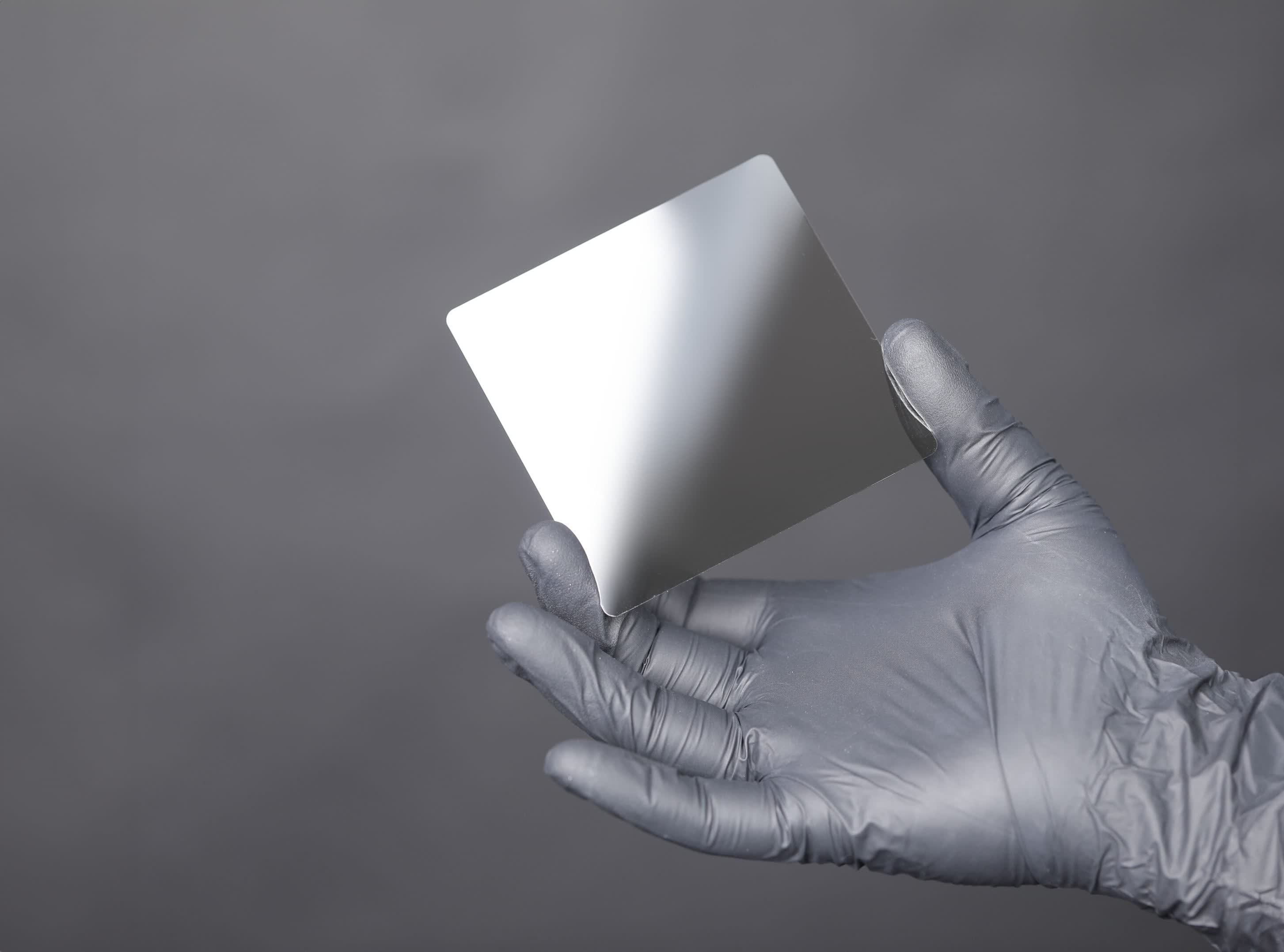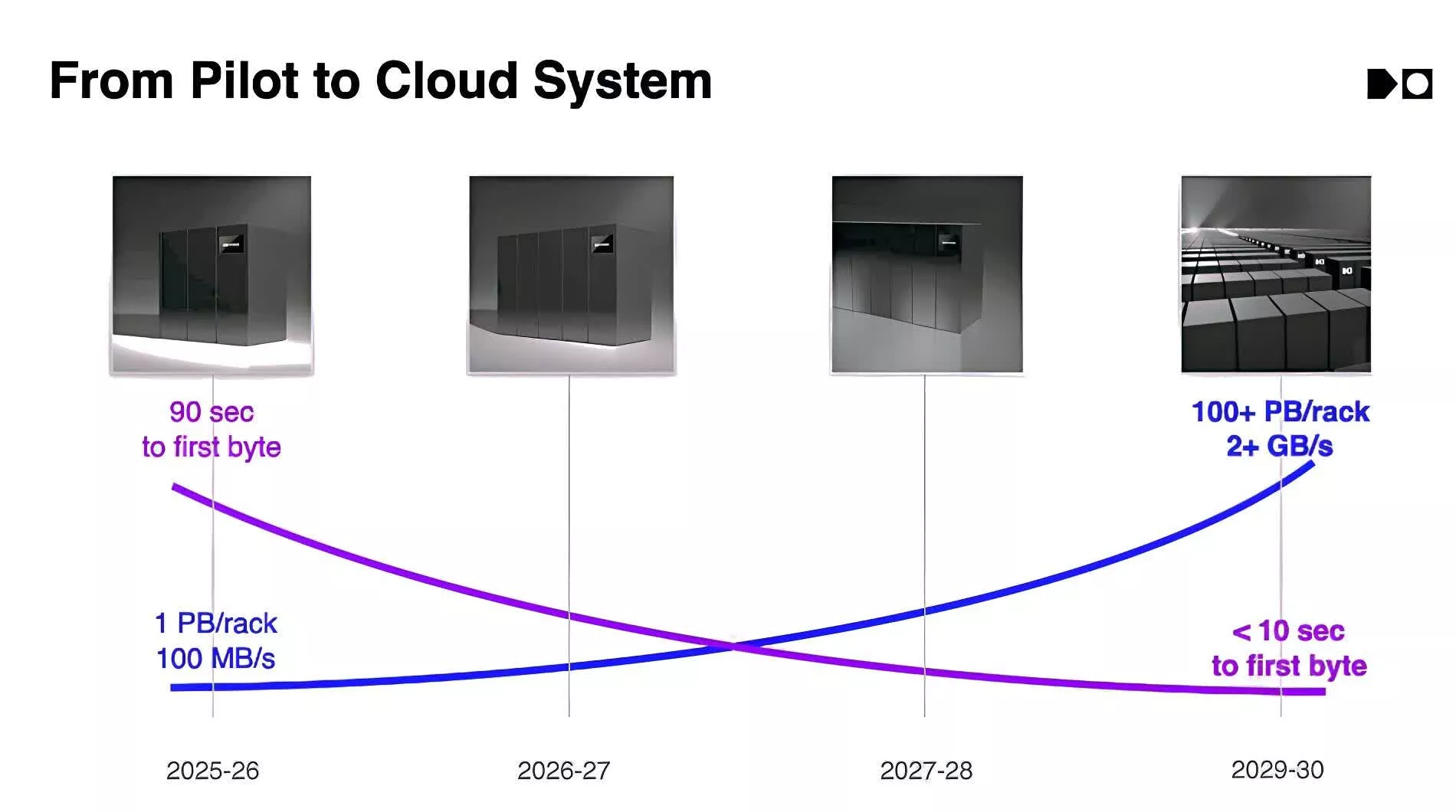Forward-looking: German storage startup Cerabyte has an ambitious target: to create storage racks able to hold more than 100 petabytes of data by 2030. The company intends to use its laser-etched glass-ceramic technology for the task, which it says lasts more than 100 years compared to traditional tape storage's 7 to 15-year lifespan.
Speaking at the A3 Tech Live conference in Munich recently (via Blocks and Files), Cerabyte CMO and co-founder Martin Kunze talked more about the company's next-generation storage tech. It encodes data by firing femtosecond lasers at a 500- to 100-atom-thick ceramic nanolayer on thin glass tablets, etching permanent nanodots that high-resolution cameras can read optically.
The glass-ceramic sheets slot into tape-library-style cartridges, which are moved around inside cabinets using robotic arms.
Kunze said that the pilot 1 PB per rack system, which has a 2025/2026 date, aims for a 90-second time to the first byte and only 100MBps in sustained bandwidth. By the time the 2029/2030 model arrives, those figures are expected to have increased to over 100PB per rack, less than 10 seconds to the first byte, and a transfer rate of over 2 GBps.
Cerabyte also believes that its femtosecond laser writing technology could evolve into particle beam matrix tech, reducing the written bit area spot size from 300 nm to 3 nm. Using a helium ion beam for the writing, Cerabyte predicts that a rack holding up to 100,000 PB will be possible by 2045, though some are skeptical about this theoretical claim.
Compared to the likes of Microsoft's Project Silica, Holomem, and DNA storage, Cerabyte says its technology offers benefits such as greater longevity, lower cost per TB, and faster access times.
Kunze said that Cerabyte's solution could ship data at 1-2 GBps versus tape's 1 GBps, and cost $1 per TB against tape's $2 per TB. He also claimed that replacing tape with Cerabyte's tech would reduce the carbon footprint of global data storage from 2 percent of global CO2 emissions to 1.25 percent.
Earlier this year, Cerabyte showed how a sliver of its archival glass could survive being plunged into a kettle filled with boiling salt water and being roasted at 250°C (482°F) in a pizza oven.



